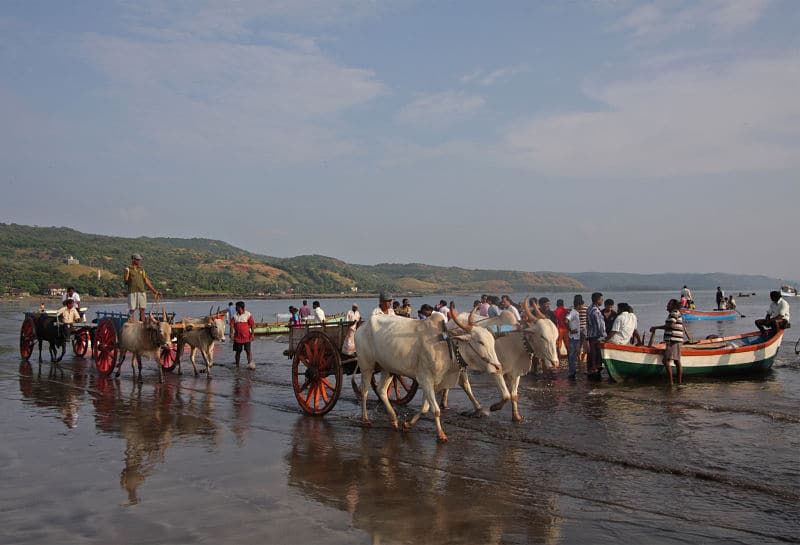The Last Words of Nokseng: The Story Behind “I Have Decided”
★★★★★

Harnai port, India by Cj.Samson/Wikimedia Commons
Lucinda continues the series of stories of Christian martyrs and heroes from the past. We hope you will be inspired by these histories and perhaps find them helpful in preparing for school devotions and other lessons.
- Year: mid-1800’s
- Place: Assam, India
- Person: Nokseng
- Event: A man’s last words convert a village
In the days when fierce headhunters inhabited the jungles of Assam in India, missionaries traveled to the land to tell the Garo people about Jesus. Now the Garo in those days “were looked upon as bloodthirsty savages,” (Playfair 1909, 76-77) the hills they roamed were covered with impenetrable jungle, and the climate was so deadly it was considered impossible for a white man to live there. Nevertheless, missionaries inspired by revival in Wales came to share the gospel, and a Garo man named Nokseng, along with his family, gave his heart to Jesus.
The chief of the village was angry and summoned the man, his wife, and his two sons. In front of the entire village, he demanded that the family renounce their new beliefs or be executed. Moved by the Holy Spirit, Nokseng replied, “I have decided to follow Jesus. No turning back.”
Enraged, the chief ordered his archers to shoot the two boys. “Now give up your faith,” he ordered Nokseng. “You have lost both your children, and I will kill your wife next.”
“Though none go with me, still I will follow Jesus,” Nokseng replied. “No turning back.”
Even more furious, the chief ordered his archers to kill the wife, and when she was dead, he turned to Nokseng. “If you don’t renounce Jesus, you will die, too.”
“The cross before me, the world behind me. No turning back,” Noksung declared.
The chief’s archers shot the man where he stood, but the chief was deeply moved by his faith. “Why should this man, his wife and two children die for a man who lived in a far-away land on another continent some 2,000 years ago?” he wondered. “There must be some supernatural power behind the family, and I too want that supernatural power.”
The chief declared publicly that he too would now belong to Jesus, and the entire village, after seeing the family’s faith and their chief’s conversion, also decided to follow Christ.
An Indian Christian missionary, Sadhu Sundar Singh, formed Nokseng’s last words into the hymn which we still sing today.
***
Several versions of this story are told, all similar but with some differences in details. This story is based on the account by Indian Christian evangelist Dr. P.P. Job in his book Why, God, Why?
Related Items
Leave a Reply
Feedback